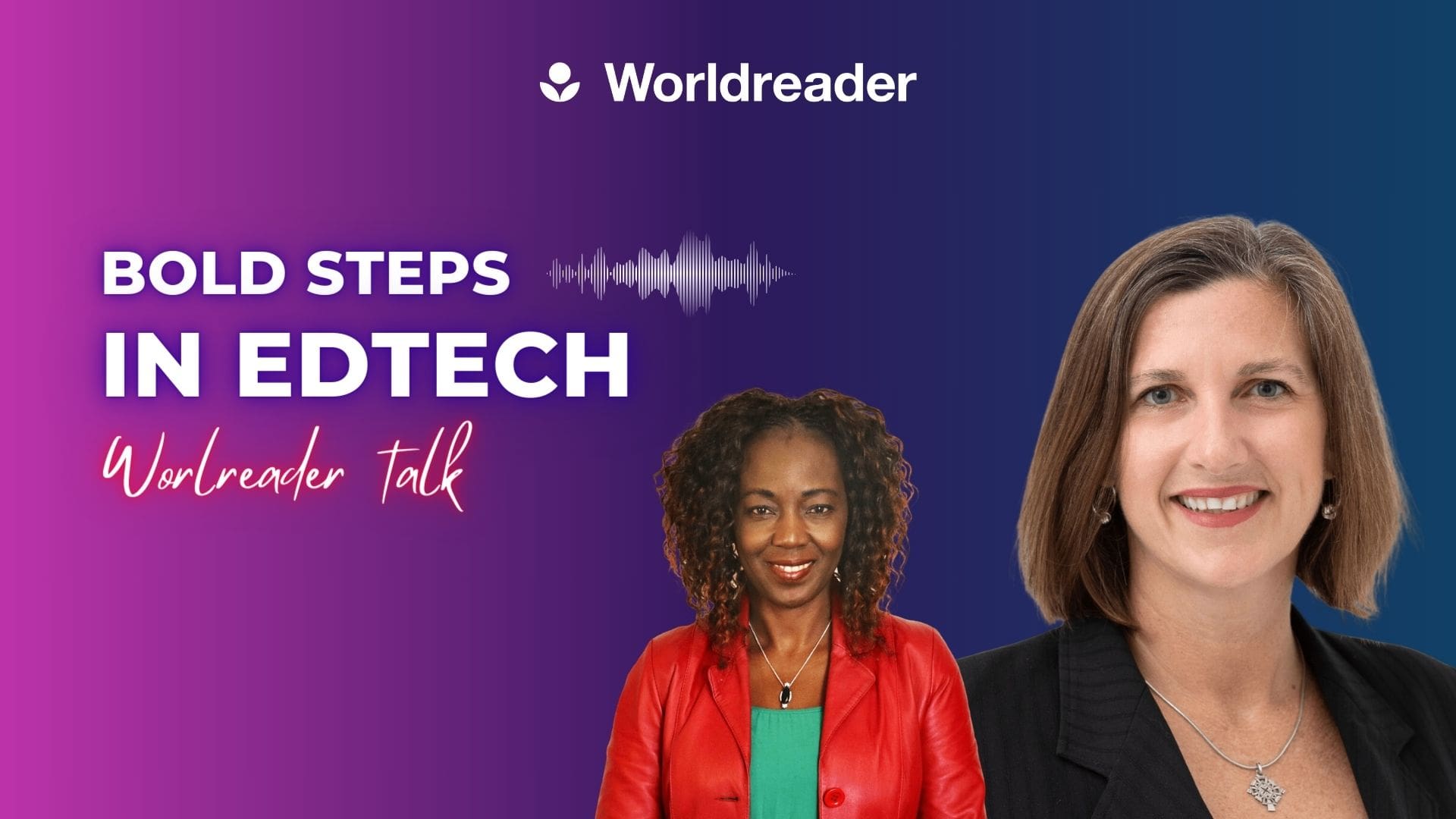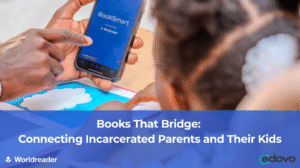Kenya’s President William Ruto recently traveled to the United States in an event described by the White House as a ‘historic State Visit,’ marking 60 years of official US-Kenya partnership. The State Visit catalyzes stronger partnerships in education through a series of educational and exchange programs, EdTech investments, and digital expansion efforts.
We sat down with our CEO Rebecca Chandler Leege and Olivia Kimani, Worldreader’s Director of Partnerships and leader of our team in Kenya, to discuss the future of education in East Africa and around the world. Read the conversation to learn about our work in Kenya and the collective bold steps that we must take to ensure the world’s children can enjoy the benefits of reading.

Thank you for joining the conversation. During Ruto’s visit, the US pledged to invest over Sh4 billion (USD 31M) in the Kenyan education sector. How can we balance such tremendous investments in formal education settings with similar support to informal settings and ensure all children have equitable access to education?
Rebecca: Seeing the United States host President Ruto was such a joy. We know that President Biden and his wife have been passionate about education for a long time, and it’s equally exciting and important to see President Ruto prioritize these co-investments being made in Kenya’s education system.
When we think of investments in education, we often think of the formal setting. Yet it’s crucial to acknowledge that education doesn’t begin with preschool or primary school but at the home and household. We need to reflect on what happens in informal settings, particularly the home and communities where much of education actually happens. So when I think of education, I don’t necessarily picture a school. Instead, I ask myself, what happens at birth? How can we help parents and teachers and caregivers engage with children very, very early in their learning journey?
We must talk about what’s possible in the home if we anticipate changing the trajectory of the reading crisis.
Rebecca Chandler Leege, Worldreader CEO
With the ubiquity of personal mobile devices, the education sector has the opportunity to lead education reform. By working in concert with the private sector, they can more effectively equip parents and caregivers with the most valuable reading resources to build their children’s cognitive development and pre-literacy skills.
At Worldreader, we’ve been on a global digital reading journey for the last 14 years. In Kenya, growing mobile phone penetration offers families a way to foster reading experiences. We know that investing in early childhood improves a nation’s GDP and strengthens democracy. Worldreader is excited and committed to reaching families at home, providing free, effective reading resources to help children become confident readers.

Olivia: I agree. If in and out-of-home reading is not incorporated into daily learning programs, the journey will be far from over.
Recently, I had the wonderful opportunity to attend the eLearning Africa conference in Kigali, Rwanda. This conference offered a rare occasion to have various players in government, private sectors and academics, all in one setting, debating, and collaborating on how to prepare the youth in Africa for what they have called the 4th Industrial Revolution.
New technology is driving global initiatives and studies aimed at improving education and reshaping the learning environment. Unfortunately, thousands of primary and pre-primary school children are left behind when families are not included in digital initiatives that redefine education.
I believe it’s time for Africa to equip its youngest citizens with the skills to thrive so they can reach their full potential, or we risk being left behind.
We know that early years are crucial to the development of key skills in children, including cognitive development and literacy. How can state players support learning at these crucial young ages?
Rebecca: Focus on early years is now a core part of government, bilateral, multilateral and corporate foundation strategies. However, there’s a pervasive way of thinking of education that remains completely divorced from the healthcare system. It’s divorced from maternal and child health, or even pre and postnatal care.
So when I think of how state players can support education, I think not of the education system per se. I envision a cross-sectoral intervention between health, education and ICT sectors that can inspire a nationwide reading movement that can emphasize the value of parents reading with their children for cognitive development. I think of multiple stakeholders coming together for the development of these very young children who represent our future. Who will lead us into more democratic efforts, stronger innovations for this world. I look forward to an opportunity where Worldreader can galvanize state players into a national, and even international, reading movement.

Worldreader has been serving Kenyan children and families since 2012. What Kenyan lessons and solutions can inspire reading efforts around the world?
Olivia – Kenya-led efforts, though sometimes very unique to the region, aren’t that different from what we would expect when tackling parental engagement issues and common global goals and challenges like climate change, equality, or even health. And you know what, all of these can be solved by giving everyone access to reading.
What sets Kenya apart is that we have a very youthful population, with over 80% of Kenyans under the age of 35. When you think about it, the parents of children aged 3-12 are most likely Millennials and Gen Z, which makes them social and digital media natives. Nairobi, a prominent tech hub, enhances this dynamic. With Worldreader’s BookSmart reading app, we are well-positioned to help parents bridge children’s reading and learning gap. We engage with these young parents through social media, where they’re most likely to be found.
We are sharing our learnings with the rest of the world on how to use digital tools and social media platforms to trigger behavior change in reading habits at home with families and caregivers. And we have a robust structure of programs and research that guide us on engaging with caregivers.
One of the things that stood out very clearly from the beginning was that when we give caregivers interactive tools and great reading content at their fingertips and empower them to read with their youngest children at home, we are preparing the next generation for success.
Olivia Kimani, Worldreader Director of Partnerships
What are Worldreader’s plans for the future in Kenya?
Olivia – We’re reaching out to parents, caregivers, influencers, the whole community to join the reading movement in Kenya.
And I want to talk directly to you, Kenyans. Wakenya, come and join us, share experiences, inspire each other with bold strategies. Be fearless.
Olivia Kimani
We need to implement family strategies that truly work, talking to parents, being in Kenyan homes. We need to inspire the next generation to start reading now. Because the future of Kenya depends on it.




